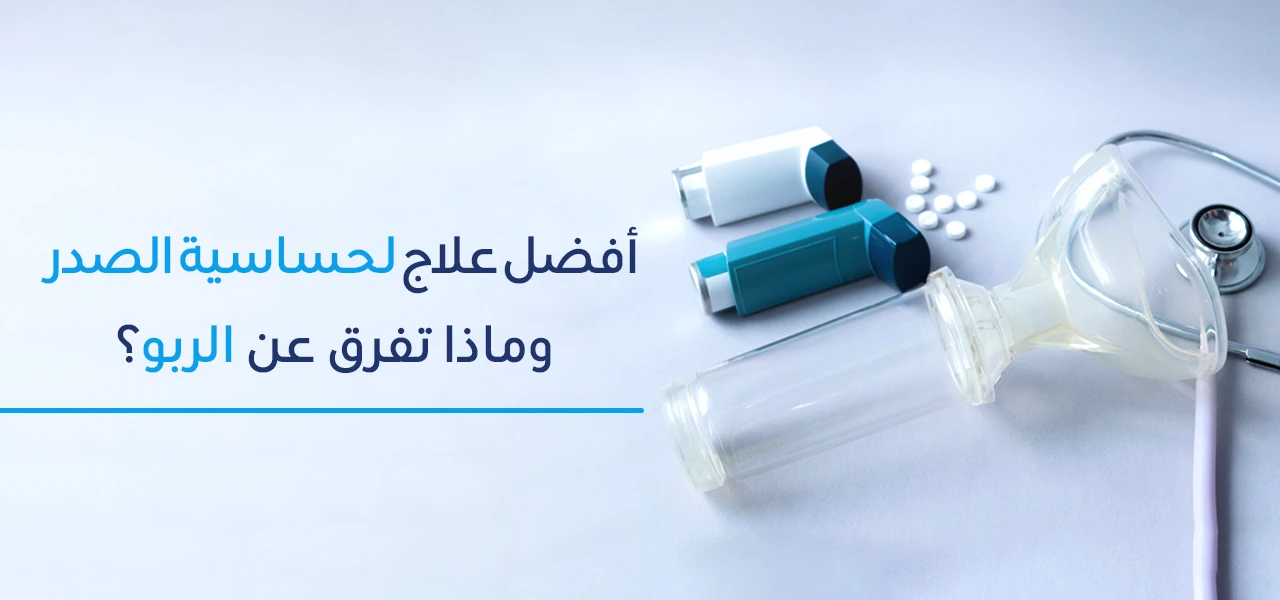8 causes that lead to chest allergies

Symptoms of chest allergy
Types of chest allergies vary, as do their symptoms and severity from one individual to another, and may even differ from one attack to another for the same individual.
Its symptoms may appear at a specific time of the year, such as seasonal chest allergies, or when you exercise, or its symptoms may appear all the time.
We show you its most important symptoms, including the following:
- Cough, especially at night.
- Shortness of breath occurs.
- Having pain or tightness in the chest.
- A whistling sensation in the chest.
- Feeling very tired.
- Feeling anxious and stressed.
- Difficulty speaking.
- Difficulty sleeping due to breathing problems.
Chest allergy symptoms can get worse and may result in a chest allergy attack. The attack begins gradually or suddenly when you are exposed to an allergen. The attack may last from several minutes to hours and can be life-threatening.
Causes of chest allergy
There are many causes that cause chest allergies, including genetic or environmental factors that can increase the risk of developing it, as exposure to irritants and allergens results in the appearance of its symptoms, and these causes can vary from one person to another, including the following:
- Airborne allergens such as pollen, dust mites, mold, pet dander, or cockroaches.
- Strong odors such as perfumes and cleaning materials are among the causes of allergy symptoms.
- Substances that pollute the air and tobacco smoke.
- Sinus infections, colds, and flu can be causes.
- Too much physical activity or exercise.
- Some types of medications can be a cause of chest allergies, such as acetylsalicylic acid.
- Gastroesophageal reflux disease.
- Some food preservatives, such as sulfites, as there are a number of foods that may increase them, such as foods and drinks to which preservatives are added, such as shrimp, pickles, dried fruits, and lemon juice.
Tips to help relieve allergy symptoms
We offer you some tips that can help you reduce its symptoms, including the following:
- Staying indoors on days that can be dry or windy, as large numbers of pollen may increase your allergy symptoms.
- Avoid mowing, weeding, and other gardening, as this can help reduce your exposure to allergens.
- Don't hang laundry outside, as airborne pollen can stick to the clothes.
- Close windows at night and during periods when there could be high pollen counts.
- Avoid leaving the house early in the morning, due to the presence of a large number of pollen and allergens.
- Rinse the nose with saline solution, because it removes mucus and cleans the nose of all allergens.
Drinks can reduce the symptoms of chest allergies
Many drinks can calm and relieve its symptoms, including the following:
- Mint drink, mint drink has the tremendous ability to soothe a sore throat, in addition to having a great effect on the muscles related to breathing, as it helps to relax them thanks to it containing the menthol compound, as mint is considered an antihistamine and a decongestant, which makes it one of the drinks. Ideal for treating it.
- Chamomile drink: Chamomile contains many natural properties. It is considered an antioxidant, anti-spasmodic, and a natural anti-inflammatory, so it is considered an effective drink against the feeling of itching in the throat and shortness of breath.
The difference between chest allergies and asthma
Chest allergies and asthma may usually occur together. The same substances that may cause allergy symptoms can also trigger asthma symptoms, such as pollen, pet dander, or dust. Allergies can also occur in some individuals as a result of eating certain foods.
Chest allergies and asthma share many symptoms, such as cough and shortness of breath, but they can present in different ways.
Allergies and asthma differ in terms of the following:
- Symptoms.
- And treatment methods.
The difference between asthma and allergies in terms of symptoms
Allergy symptoms differ from asthma symptoms in the following:
- Symptoms of an allergy can include coughing, shortness of breath, nasal congestion, runny nose, itchy eyes, watery eyes, and sneezing.
- Asthma symptoms include a continuous cough, especially at night, wheezing or a whistling sound when breathing, shortness of breath, and tightness in the chest.
The difference between treating chest allergies and asthma
Types of drug treatment for both asthma and chest allergies are divided into the following:
Types of treatment for asthma
- You can treat and control asthma symptoms by using Ventolin Evohalar 100mg 200 alone, which relieves the symptoms of asthma and chronic obstructive pulmonary disease, in addition to treating cough, wheezing, shortness of breath, and bronchial irritation.
- You can treat asthma symptoms with Ventolin Solution 20 ml. This solution facilitates the breathing process and treats cases of asthma and chronic obstructive pulmonary disease.
Types of treatment for chest allergies
Omron Namicat Compressor C303k is a children's steam inhaler with a powerful compressor that helps reduce allergy recovery time.
- The Dr. Med children's mask set is one of the best types of children's masks that helps inhale regularly and comfortably for the child. It is provided by the Dr. Med brand, which is one of the best brands that manufactures masks.
- The bic respirator device is one of the best devices used to assist in inhalation, regulate the breathing process, and treat chronic chest allergies.
- The Dr.Med adult mask set represents the best type of adult mask that helps complete breathing and inhalation sessions continuously.
At the end of this article, we have presented the most important information that you may need to know about chest allergy, which is considered one of the diseases that may threaten a person’s life if its symptoms increase and worsen. We have also presented the most important advice and treatment methods that may help reduce the severity of allergies.
